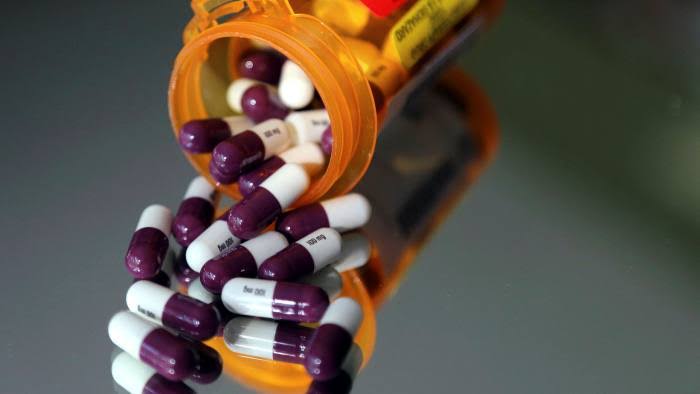Lack of access to quality affordable medicines has contributed to illegal trade in substandard and falsified medicines in Nigeria.
Prof. Mojisola Adeyeye, the Director-General, National Agency for Food, Drug Administration and Control (NAFDAC), made this assertion at the Oladipo Mobolaji Abisogun-Afodu Fourth Annual Lecture in Pharmacy on Thursday in Lagos.
Theme of the lecture was: “Pharmacy Practice and Advancement in the Nigerian Pharmaceutical Industry; Regulatory Perspectives.”
The News Agency of Nigeria (NAN) reports that the annual lecture was organised by the University of Lagos (UNILAG), Office of Advancement and the Board of Trustees, in collaboration with the Faculty of Pharmacy of the institution.
According to her, the development has posed a real challenge to the manufacturers of genuine medicines.
“Pharmacists should understand by training, the health outcome of counterfeit, substandard and falsified medicines.
“Pharmacy is a unique healthcare profession with diverse knowledge and skills, and with regard to medicine and related health sciences.
“Pharmacy practice is a highly regulated, very dynamic practice and ever evolving.
“In the 1960s, local manufacturing in Nigeria began and contributed greatly to the growth of the nation,” Adeyeye said.
She said pharmacy was very important to the attainment of drug security in the supply of quality and affordable essential medicines for Nigerians.
“Regulatory controls on importation will also boost local manufacturing capacity.
“Advances in pharmaceutical and regulatory science and in other areas are also key drivers to the pharmaceutical industry.
“NAFDAC, as a regulatory agency, is saddled with the responsibility of regulating pharmaceutical industries, among others in Nigeria,” Adeyeye said.
The director-general said adherence to the regulations and guidelines had enabled innovation and helped companies to gain or maintain competitive advantage, and avoid significant regulatory system.
She said in 2020, there were about 165 active local pharmaceutical manufacturing industries operating in the country.
“They were regulated by the agency to ensure that high quality, safe and efficacious pharmaceutical products, are produced and distributed for public use in compliance to global best practices.
“To strengthen the pharmaceutical industry, one of the cardinal aims of the agency is promoting local manufacturing with the goal of achieving drug security and self sufficiency in local production,” the NAFDAC DG said.
Commenting, Prof. Oluwole Familoni, Chairman, Board of Trustees of the Office of Advancement, urged NAFDAC to improve its staff capacity to help check and curtail fake and substandard drugs in the country.
Familoni, also the Deputy Vice-Chancellor (Academics), UNILAG, said more pharmacists and experts were needed to be employed into the field to ensure best practices in pharmacy.
“Pharmacists are doing their best, but some stronger powers influence the growth and best pharmacy practice in the country.
“NAFDAC is in charge of regulating and eradicating the production of fake drugs, within and outside the country, to avoid entrance into Nigeria.
“NAFDAC should continue to consistently check and search every drug company producing fake and substandard products due to people’s consumption,” he said.
Also, Mrs Kikelomo Sunmonu, past Chairman, Lagos State Association of Lady Pharmacists, said there was need for both the Federal and State Governments to make up their minds in funding the Pharmacy Council of Nigeria.
Sunmonu, speaking as Special Guest of Honour, said during her practicing days, governments were not forthcoming in doing justice to pharmaceutical practice in the country.
“The young pharmacists should search their consciences to know, if they have interest in or fight for the right of pharmacy practice.
“Lecturers in higher institutions should bring younger pharmacists up by teaching them good morals, so they can be the best in the practice and not chasing money only,” she said.
NAN reports that Mrs Ogochukwu Amaeze of the Department of Clinical Pharmacy, UNILAG, had won a research grant of N1.4 million on a project.
It is titled: “Pharmaceutical Interventions Provided by Community Pharmacists; A case Study of Lagos State.” (NAN)



Leave a Reply